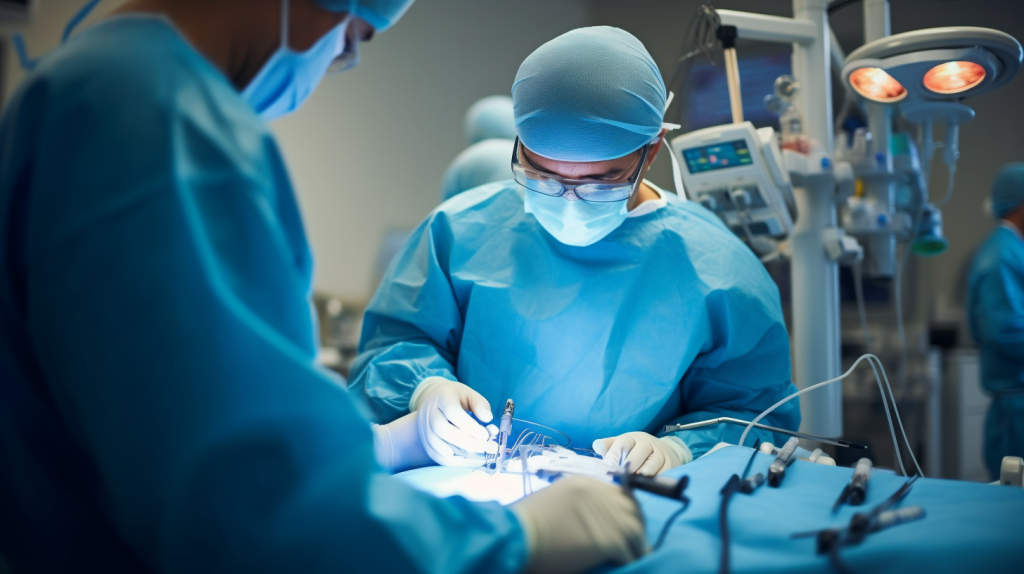As a Hernia Specialist in Mumbai, we have been asked multiple times, the hernia needs Surgery on an emergency basis or always Hernia is repaired by Surgery only. In this blog post, we have explained in detail, When Hernia Surgery is needed. What are the Symptoms of hernia, Treatment options etc?
July 4, 2024
A hernia occurs when an internal organ or tissue protrudes through a weak spot or opening in the muscle or connective tissue that holds it in place. These protrusions can occur in various parts of the body, but they are most common in the abdomen (Epigastric Hernia), groin, and upper thigh regions.

Several factors can contribute to the development of a hernia, including:
The most common symptoms of a hernia include:
Accurate diagnosis is crucial for determining the appropriate treatment approach for a hernia. Your doctor may recommend the following tests or imaging procedures:
Test/Procedure | Purpose |
Physical Examination | Assess the size, location, and characteristics of the hernia |
Ultrasound | Visualize the hernia and surrounding tissues |
CT Scan | Provide detailed images of the hernia and internal structures |
MRI | Evaluate the extent of the hernia and identify potential complications |
Herniography | Inject a contrast dye to highlight the hernia and its contents |
The treatment approach for a hernia depends on various factors, including the type and severity of the hernia, the presence of symptoms, and the patient’s overall health condition.
If the protruding tissue becomes trapped (incarcerated) or has its blood supply cut off (strangulated), immediate surgery is necessary to prevent serious complications, such as tissue damage or bowel obstruction.
Hernias that are large or growing rapidly are more likely to become incarcerated or strangulated, increasing the risk of complications. Surgical repair is often recommended in these cases.
If a hernia causes significant pain, discomfort, or interferes with daily activities, surgical repair may be the best option to alleviate symptoms and improve quality of life.
Certain factors, such as obesity, chronic cough, or a physically demanding job, can increase the risk of complications associated with a hernia. In these cases, surgical repair may be recommended to prevent further complications.
Hernia repair surgery is generally safe, but like any surgical procedure, there are risks involved. These include bleeding, infection, and potential complications related to anaesthesia. However, the risks are typically low, and the benefits of repairing a hernia often outweigh the potential risks.
In some cases, small hernias may resolve on their own, especially in infants and children. However, most hernias in adults will not heal without surgical repair, and they may continue to grow and become more problematic over time.
Recovery time varies depending on the type of surgery performed and the individual’s overall health. For open hernia repair, recovery may take 4-6 weeks, while laparoscopic or robotic-assisted surgery often results in a shorter recovery period of 1-2 weeks.
The cost of hernia repair surgery can vary depending on factors such as the type of procedure, hospital and insurance coverage. Approximately cost in Mumbai for Hernia Surgery is ₹ 50K – 1.5L
Seeking prompt health advice for Hernia not just for symptom relief but also for screening associated problems.
If you are near Mumbai, you can Senior Laparoscopic Hernia Specialist in Mumbai – Dr Pradeep Shriyan
Don’t ignore the troublesome symptoms of Hernia. Remember, early diagnosis and treatment of hernias are crucial for preventing potential complications and ensuring a successful outcome.
Contact a General Surgeon in your nearest area if you notice any related symptoms or persistent changes of Hernia Symptoms
Developed by PRAZONE Web Solutions
Copyright © 2024 All rights reserved by
Dr Pradeep Shriyan